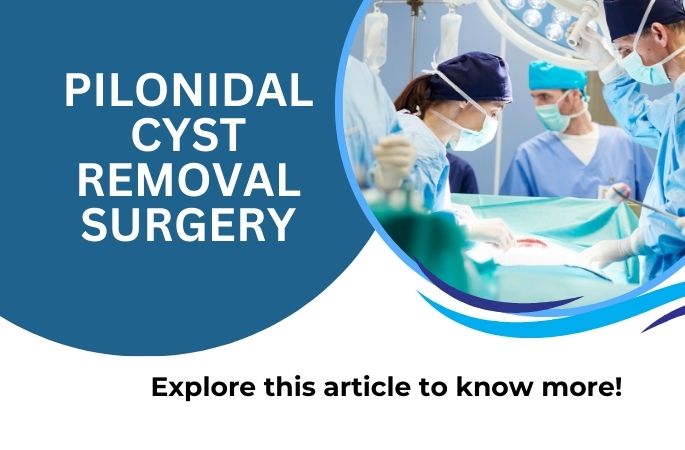Surgery is the only option for patients who suffer from pilonidal disease. No medicine can help you get rid of the pain and discomfort caused by an inflamed & infected pilonidal cyst. Whether it’s your family doctor or an experienced colorectal surgeon, both will suggest the same. The surgery will help drain the abscess and remove the cyst. You do not have to wait for the cyst to heal itself. You have to go through the cyst removal process and it’s not something that will be a risk to your life. If you have the right surgeon in your operative room, everything will be fine, and you just don’t have to worry about anything.
However, after pilonidal cyst removal surgery, you have to take good care of yourself. It may be a small procedure but that does not mean you do not have to follow the port operative care plan after the surgery. Here, I will mention the most important post-operative care tips for patients who are about to undergo cyst removal surgery.
List of the post-operative care for Pilonidal Cyst Removal Surgery
Here is the list of after-surgery care tips that you must follow to stay healthy.
-
Do not engage in any strenuous activity
You have reached home after the surgery and now that you are lifting heavy weights at home, it is not going to let your body recover. You have to wait for at least one week post-surgery. Only then you can start lifting weights. You have to give your body enough time to heal properly. If you start working with loads soon after the surgery, it will put pressure on the wound causing bleeding which is not a good sign. So, avoid any such activity.
-
Warm salt water bath
Have you heard about the warm saltwater bath? Some know but some may be thinking of taking a full bath in salt water. Well, you do not have to take a complete bath but have a sitz bath by putting some warm salt water in the tube and then sitting in it for at least 15 minutes and for not less than three times a day. Also, you have to take a sitz bath after every bowel movement. This way you can prevent any infection and maintain good hygiene.
-
Check for any bloody discharge
As soon as you reach home, make sure you keep on checking the wound. There are some cases where people complained of bloody discharges which is normal but it should not be continuous wetting your dressing as well as your clothes. You have to keep this thing in your mind. If the bloody discharge is continuous, you have to call your doctor or visit the clinic for a checkup. There are chances that your wound is infected and it is causing the bloody discharge to ooze from it.
-
Consume laxatives to keep your digestive tract healthy
After the surgery, you must take some laxatives. It’s not because you may have constipation, but because any strain on your lower back area may interrupt your fresh wound. So, your stool must be soft enough so that it comes out comfortably, not making you strain to let it pass through. You can also add fiber supplements as they help with this.
-
Hydrate Yourself
When you are back to your place after the surgery, it’s time that you start drinking at least 10 -12 glasses of water every day. This will keep your body hydrated, remove toxins, and keep your gut healthy. Also, if you are on medications, it will reduce the stress on your body because for some people it’s tough to manage heavy doses of antibiotics or painkillers. So, if you have a good water intake, it is going to help you a lot.
-
Take Pain Killers only If necessary
After the pilonidal cyst removal surgery, your doctor will advise you to take some painkillers until your pain goes away. It does not mean that you have to take a painkiller every 8 hours. It is not a good sign. You must check the level of pain and if it is unbearable even after a few days post-surgery, you must consult your surgeon before taking the painkillers. There may be some other reason for the pain and you have to know it rather than using the medicine for too long.
-
Check fever and chills
If you are having high fever and chills after the surgery, it’s time to go back to the hospital for a checkup. The spike in the body’s fever indicates that there is some infection that needs to be treated first. Your doctor will check the wound and ensure that you are put on strong antibiotics to kill the infection and subside the fever & chills.
Conclusion:
Thus, when you get back home, you have to take good care of yourself, avoid sitting for long, and eat healthy and good food for early recovery. Also, you have to keep in touch with your surgeon and do not miss any follow-up meetings. You must be in the loop until the wound heals properly and you can come back to your normal routine.












